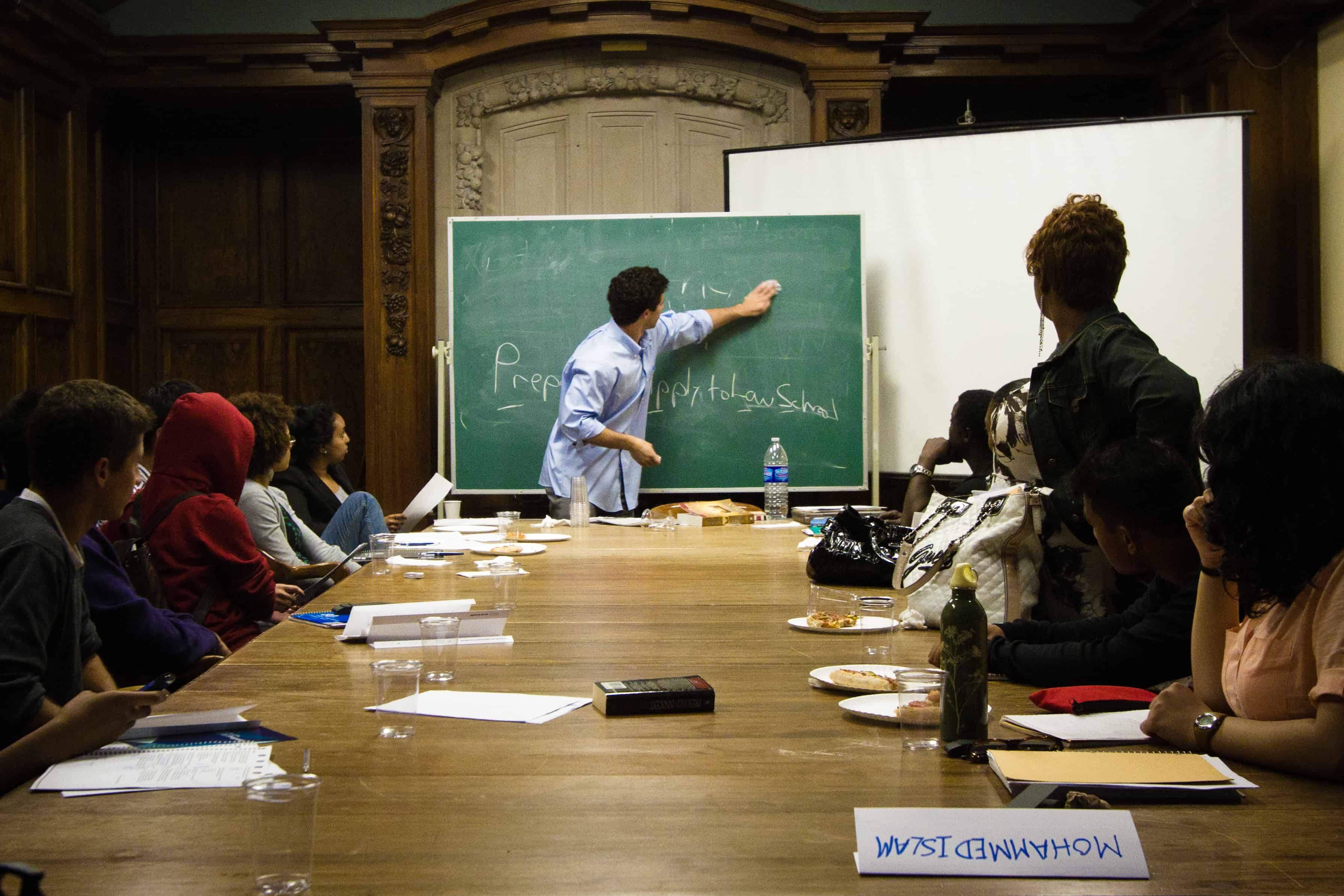Every Wednesday evening through early October, twenty students from across the city will meet for three hours in an elegant wood-paneled room in the Faculty of Law’s Falconer Hall. They are taking a preparatory course for the Law School Admission Test (LSAT).
LSAT prep courses offered by companies like Kaplan or the Princeton Review can cost of over $1,000; the University of Toronto’s Law School Prep Program for low-income students, by contrast, is entirely free.
The program is the first of its kind in Canada, following in the footsteps of American universities like Harvard and New York University that have launched similar initiatives.
Taught by a current law student, the course offers students the opportunity to practice questions similar to the ones that appear on the exam, as well as to access information and advice about the comprehensive law school admissions process, which can be as daunting as the test itself.
“We don’t all have support coming from home or other places,” noted Arisa Babiuk, a University of Toronto undergraduate who successfully completed the Academic Bridging Program. “So you feel like if someone’s invested interest and time into you [through programs like this one], then you must be able to succeed and pass on your success to other people.”
“Not only does it offer help for writing the LSAT, but it also offers us guidance for applications and admissions,” said another student, who requested that her name not be used. “With first generation parents, I’ve never had that kind of help. Programs like this one provide us with a degree of comfort in pursuing our goal of law school.”
While the students acknowledged financial strain as a significant hurdle, they also emphasized that the journey to law school is fraught with numerous obstacles and challenges that often go beyond financial barriers.
“Because the cost of our education is covered, restricted access to higher education is suffered by Aboriginal and First Nations people in a different way,” explained Janine Manning, president of the York University Aboriginal Students’ Association. “While I may have law school paid for, I may not receive any social support or encouragement in the application process.”
Participants say that what’s notable about the program is that it alleviates some of the financial stress of applying to law school, while providing participants with the kind of support and direction in the application process that they might not otherwise be able to access.
“I’m so grateful for this course,” Babiuk said. “There are so many opportunities that have been opened up to us as a part of this program that most people can only dream about.”


